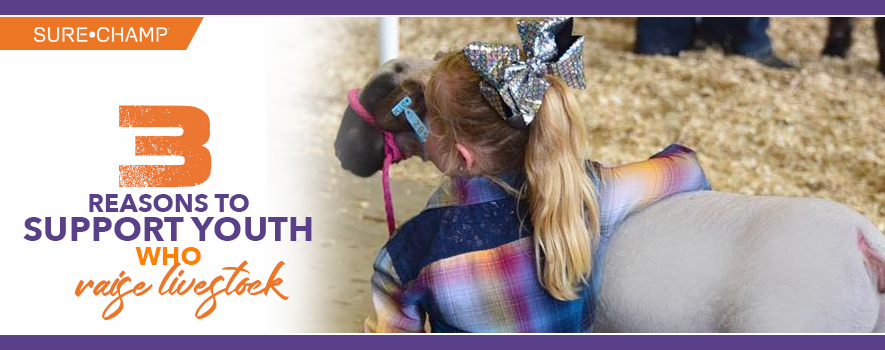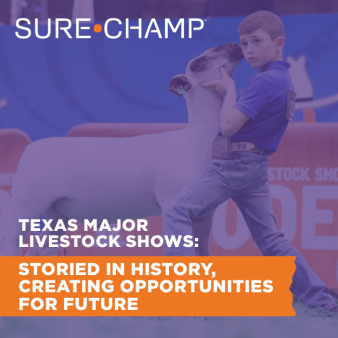
Critics claim that raising livestock through FFA and 4-H hardens the hearts of our industry’s young people. Yet, if you have been involved in these organizations, you know it does just the opposite. Raising livestock awakens the soul and gives young people a purpose. It gives them a reason to wake up each day and be a caretaker and teaches the proper way to care for animals to ultimately deliver a safe product to the marketplace.
Whether you agree or not with the concept of raising livestock for food, it has been a common practice in our culture for centuries and a practice that is sure to continue. And the truth is, the livestock raised by youth live the very best life on earth, and our young people learn endless life lessons along that journey. Young people take so much pride in caring for their animals, and they make great stewards of livestock for many reasons.
1. Their care comes from their hearts, not from their pockets.
While raising livestock teaches young people to be financially responsible and work hard for what they will eventually earn, the quality of care along the way stems directly from the heart. Kids make a commitment to their animals for months ahead of time and take on lots of responsibility each day. The time they spend with their animals before the fair is filled with washing them daily, brushing and working their hair or conditioning their skin, exercising, showmanship practice and superior nutrition both morning and night. When you spend that much time with an animal, a special bond quickly forms, and that bond propels young people to give the best life possible to their livestock. If our animals are going to be used for production agriculture, it makes sense to put them in the care of young people who spend time with them each day and build a relationship with them from the moment they bring them home and give them a name.
2. It’s more than just an endpoint, it’s an experience.
Youth involved in raising livestock through programs like 4-H and FFA are interested in more than just selling their animal at the county or state fair. Most young people involved in showing livestock are also involved in other activities within 4-H and FFA and are interested in becoming well-rounded adults and leaders. Showing livestock is just one project area they might participate in; however, they might also get involved in public speaking, livestock judging, photography, veterinary science and other life skill projects that will enhance their education and develop their leadership skills. Through showing livestock, they are choosing to get a first-hand look at responsibility and what it takes to care for another living thing. They grow to understand the importance and value of hard work and learn that nothing is attainable without setting goals and implementing efforts to get there. They work to learn more about agriculture advocacy through developmental programs, which challenges them to seek out the best production practices to utilize when raising their stock. There is a lot more that goes into a livestock project than what goes in and out of the animal’s feed pan to get them to an endpoint. Kids not only make a commitment to an animal, but they make a commitment to themselves and typically to their club and community toward learning better life skills.
3. Young people who raise livestock today become the leaders of tomorrow.
Chances are a large percentage of the young people who raise and show livestock will land a career that impacts the agriculture industry. By choosing to raise livestock at a young age, youth learn the true value of livestock and through daily care, they develop a personal relationship with them. They grow an appreciation for the lessons livestock teach them and, these values, like responsibility, stewardship and work ethic, stay with them for the rest of their professional life. With the knowledge they learn about caring for animals and the memories they hold from their personal experiences; these young people go on to be industry leaders in the animal production industry. They place emphasis on caring for each animal and work to research and implement the best care practices and the most relevant nutritional programs to give animals the best life possible.
Teaching youth about the purpose of livestock animals is not a cruel attempt to harden their hearts and squash their feelings, it is merely a reality of agriculture education. We ask extraordinary things of our animals each day – it takes extraordinary individuals to reciprocate the type of care our animals deserve. There is no question that the youth of our industry have the biggest hearts and helpful hands to deliver such care.

